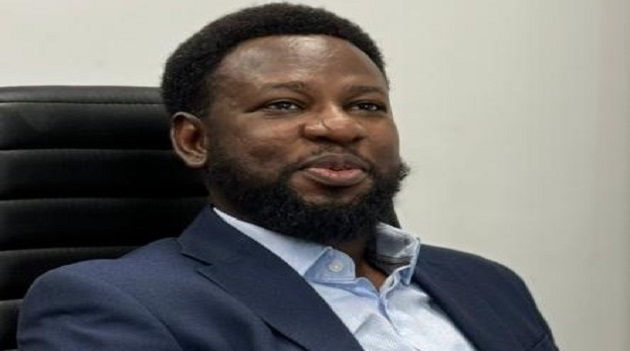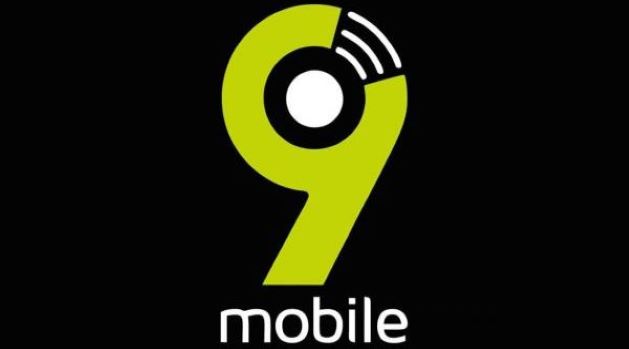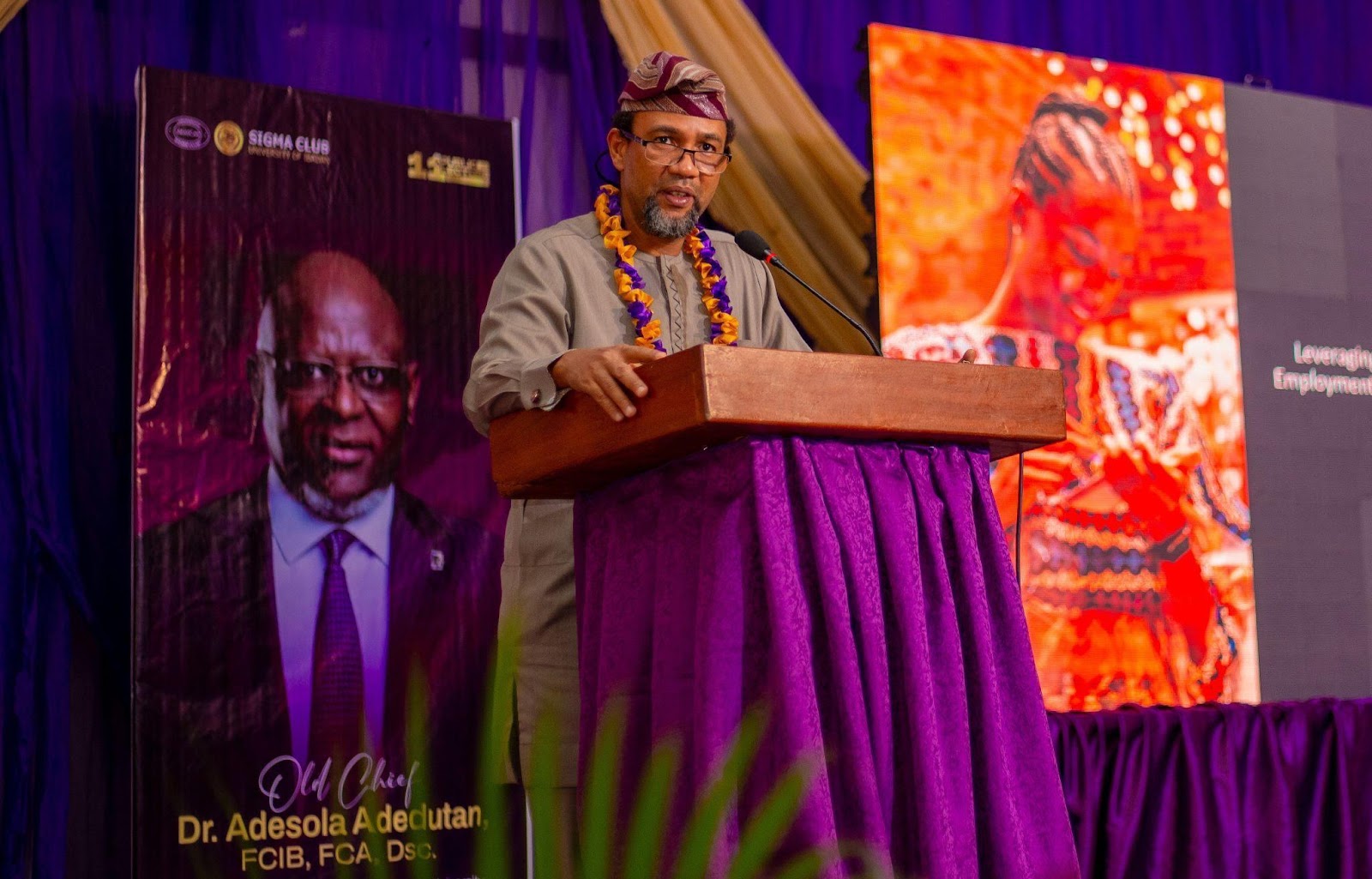Telecom
Open Access Data Centres Recognize Sustainability as Key in its Operations – Aduloju

Mr Olatunji Aduloju is Operations Manager at Open Access Data Centres (OADC) on Sustainability in Data Centre Operations.
He has an enviable career in operations of data centre, and has worked with CWG plc where he managed the company’s data centre for over 5 years before joining OADC few years ago.
In this interview, he explained the driving force behind WIOCC and OADC sustainability efforts. WIOCC Group is the parent company of WIOCC- Africa’s digital backbone and OADC.

What does sustainability mean to WIOCC and Open Access Data Centres and how driven is the company on sustainability and the environment?
Sustainability encompasses a variety of obligations that are inherent in conducting business responsibly. For WIOCC and OADC, this includes:
- Leadership within the ICT industry, and regional bodies, and active engagement in industry organisations and events. For example, the CEO of OADC serves as Chairman of the Africa Data Centres Association and is a member of the Science and Technology Committee of the Lagos Chamber of Business and Industry. OADC also participates in the Infrastructure Masons Climate Accord which demonstrates our commitment to global initiatives focused on carbon accounting and reduction.
- Corporate social responsibility initiatives through which we make a positive impact on the communities amongst whom we operate. For example, OADC has served as a strategic partner for the STEAM UP programme in Lagos for three consecutive years. This mentorship program aims to inspire, motivate, and guide young girls in pursuing studies and careers in the fields of Science, Technology, Engineering and Mathematics, by connecting aspiring female scientists in secondary schools with professional women working in STEM fields.
- A comprehensive sustainability strategy across the entire WIOCC Group, and robust systems and processes to effectively manage environmental and social risks across our operations. In practice, this includes initiatives such as using acoustic panels in our power farm to stop reverberations and high levels of noise.
How concerned is WIOCC & Open Access Data Centres about sustainability especially when it involves the environment more especially when it comes to Data Centres operations?
WIOCC and OADC recognize that sustainability is a paramount consideration in the development and operation of data centres. With increasing energy consumption and carbon emissions associated with digital infrastructure, we are committed to operating sustainably.
We apply competitive sustainability standards during the design, building and operation of our data centres. This ensures that our facilities are both hyperscale-ready for clients, and meet global investor requirements for managing environmental and social risks.
How sustainable should Data Centres be when it comes to usage of power?
Energy efficiency is an area of focus for OADC. We have set performance targets that require us to improve our Power Usage Effectiveness (PUE) which is the industry standard for measuring energy efficiency.
In addition, green building design has been incorporated as a requirement of our core data centres. This requires energy and water efficiency to be included in the design of our data centres.
A key metric in building design is the ‘embodied carbon’ of materials – this refers to the greenhouse gas emissions associated with various stages in the life cycle of building materials, including raw material extraction, manufacturing, transportation, construction, and disposal. Current international building certifications, like IFC EDGE and LEED, require us to achieve ambitious targets relating to the embodied carbon in the materials we use for data centre construction.
How can technology help data centres to maximise sustainability process especially with energy efficiency and what lessons can be learned on the energy efficiency of OADC operations?
At OADC operations, we focus on improving our energy efficiency through technology and optimal occupation of our data centres. This includes:
- Implementing advanced and more efficient cooling systems and managing airflow efficiently
- Integrating renewable energy sources
- Investing in energy-efficient hardware
- Implementing smart energy monitoring and reporting systems to identify improvements and eliminate waste.
- Using smart technologies like artificial intelligence to forecast workload and optimise resource allocation.
Waste management is always an environmental issue especially in a developing country, how can industrial waste be managed taking Open Access Data Centre as a case study?
At OADC, we apply the waste hierarchy which requires us to reduce and minimise waste as the first option. Where waste generation cannot be avoided or reduced, we recover and reuse waste in a manner that is safe for human health and the environment.
Where waste cannot be recovered or reused, we will treat, destroy, or dispose of it in an environmentally sound manner that includes the appropriate control of emissions and residues resulting from the handling and processing of the waste material. Our policy also requires us to use licensed disposal sites that are being operated to acceptable standards.
We have a Waste Management Plan that emphasizes a “Cradle to Grave” approach. This means we take responsibility for waste from its creation (“cradle”) to its final disposal (“grave”). We ensure waste separation by providing clearly labeled bins for different materials and have partnered with a government-approved waste collection service provider to ensure proper disposal.
Carbon footprints and circularity are issues in the operations of data centres, how do you recycle and manage your waste? is the community involved in your recycling process and in your waste management?
For circularity to be effective and sustainable, we start considering materials usage from the design phase. We also leverage innovative technologies and sustainable materials to minimise energy consumption, water usage, and waste generation throughout a facility’s lifecycle:
- In our Lagos data centre, we have partnered with RESWAYE (Recycling Scheme for Women and Youth Empowerment), which collects our plastic waste for recycling purposes.
- As part of our environmental initiatives, we dispose of electronic waste responsibly. Whenever possible, we ensure that equipment or its components are recycled or reused.
- Our water treatment plants are environmentally beneficial. The implementation of Reverse Osmosis and Sequence Batch Reactor technology in our plants not only provides clean and safe processed water but also helps save water and reduce waste released into the environment. Its impact is far-reaching, contributing significantly to the protection of public health and the environment.
- Additionally, we utilize environmentally friendly, clean agent fire suppression systems in our facilities. These agents have extremely low global warming potential and zero ozone depletion potential, containing no carbon dioxide or other harmful gases.
Nigeria is not focussed yet on using renewables when it comes to powering data centres, is OADC looking to do this?
Yes, certainly. OADC has recently completed a feasibility study regarding using renewable energy in our data centres. We have already launched a pilot project using solar power at one of our South African data centres, and we plan to roll out further solar installations wherever we operate in Nigeria and the rest of Africa.
We are also investigating other forms of renewable energy for future projects, including wind and wave energy.
Telecom
Court to Decides on 9Mobile Ownership Tussle September 24

Federal High Court in Abuja has fixed September 24 to rule on several applications in the case of Abubakar Ismaila Isa, a businessman, who claims that his 43 million shares were allegedly transferred to Emerging Markets Telecommunication Services Limited, operating under the trade name 9mobile, without his consent.

The matter before Justice Mohammed Umar on Wednesday, was filed by Isa’s legal team led by Femi Atteh, SAN, in suit number FHC/ABJ/CS/1971/2024.
The plaintiff seeks an order declaring him the “beneficial owner of the 43,000,000 (forty-three million) ordinary shares held in trust for him by the 1st Defendant (Seltrix Limited) in the capital of the 3rd Defendant (Teleology Nigeria Limited).”
He accused Seltrix Limited of purportedly transferring the said shares to 9mobile without his consent, resulting in the alleged illegal change of control of 9mobile to LH Telecommunication Limited by the Corporate Affairs Commission and Nigerian Communications Commission.
Joined as defendants in the suit are Seltrix Limited, Hayatu Hassan Hadeija, Teleology Nigeria Limited, Mohammed Edewor, Emerging Markets Telecommunications Limited, CAC, NCC, LH Telecommunication Limited and General Theophilus Yakubu Danjuma (Rtd) (first to ninth defendants).
A counter-affidavit sworn to and filed on behalf of Seltrix Limited, Hadejia had described the plaintiff’s application as a reckless abuse of the court process.
He urged the court to dismiss the application and award substantial costs against the plaintiff.
He also demanded concrete evidence of any trusteeship arrangement involving him or Seltrix Limited concerning the alleged N43 million ordinary shares in the capital of the third defendant, Teleology Nigeria Limited, or any matter related to the suit.
Hadejia stated that the plaintiff’s motion, dated 27 January but filed on 28 January, was a fabrication designed to mislead the court.
At the resumed hearing, Michael Aôndoakaa, SAN, counsel for Teleology, 9mobile, and others, drew the court’s attention to his preliminary objections, asking the court to strike out the case for “being statute-barred” as it was filed out of the stipulated time required.
Telecom
MTN, 9mobile Commence Ground-breaking National Infrastructure Partnership

In a landmark move set to redefine Nigeria’s telecom landscape, MTN Nigeria Communications Plc and Emerging Markets Telecommunications Services Limited (9mobile) have officially announced the rollout of their national roaming agreement, approved by the Nigerian Communications Commission (NCC).

The three-year agreement enables 9mobile subscribers to roam seamlessly on MTN Nigeria’s expansive network, significantly extending 9mobile’s coverage and improving service quality for its customers. The partnership signals a shift toward greater industry collaboration, aligning with the NCC’s vision for a more inclusive and efficient digital ecosystem.
Beyond infrastructure sharing, the agreement drives greater operational efficiency, stronger connectivity, and an enhanced user experience. It also paves the way for deeper collaboration between the two telcos, most notably a proposed spectrum leasing deal, in which 9mobile will lease its 900MHz (5MHz) and 1800MHz (15MHz) bands to MTN for three years, further strengthening MTN’s network capacity and service quality.
“This partnership marks a bold resurgence for 9mobile,” said Obafemi Banigbe, CEO of 9Mobile. “It empowers us to meet the needs of our customers, especially youthful and enterprise users, by delivering consistent, high-quality service as we roll out city by city in the weeks ahead.”
Banigbe acknowledged the leadership of Dr. Aminu Maida, Executive Vice Chairman and the leadership of the NCC, for enabling such progressive industry collaboration, and Dr. Bosun Tijani, Honourable Minister of Communications, Innovation, and Digital Economy, for his advocacy of a resource-efficient, consumer-first telecom ecosystem.
“In today’s telecom environment, access is more strategic than ownership,” Banigbe added.
“Access to infrastructure is now more important than ownership,” Banigbe added. “Rather than duplicating networks, we’re investing in access that is commercially viable and sustainable. Network infrastructure typically accounts for 70–75% of an operator’s costs, savings here mean we can reinvest in innovation and customer experience. At 9mobile, our mantra is simple: build infrastructure where necessary, share it where possible,” he concluded”
Dr. Karl Toriola, CEO of MTN Nigeria, described the agreement as a milestone for the sector, “This collaboration underscores our commitment to industry innovation, customer-centricity, and support for the NCC’s goal of a fully connected Nigeria,” said Toriola. “It reflects our shared value philosophy, prioritizing partnerships that benefit the entire ecosystem.”
Toriola also praised Dr. Tijani’s efforts in promoting meaningful collaboration as a key driver of digital access, service quality, and nationwide inclusion.
This pioneering agreement sets a new benchmark for infrastructure sharing in Nigeria. It exemplifies how competitors can collaborate to address systemic challenges, reduce redundancies, and collectively transform the industry—ultimately delivering broader coverage, better service, and faster access to emerging technologies for Nigerian consumers.
Telecom
Karl Toriola Champions Digital Education for Employability @Sigma Club Lecture

MTN Nigeria CEO, Dr Karl Toriola delivered a strong call for digital skills adoption and curriculum reform at the 11th Public Lecture of the Sigma Club, University of Ibadan, on Thursday, July 3, 2025.

Speaking on the theme, Leveraging Technology & Digital Education for Mass Employment, Wealth Creation and Poverty Alleviation, Toriola said technology and education can drive large-scale transformation by unlocking access to both global and local job markets. He explained that digital tools enable entrepreneurship, remote work, and access to essential services, especially in underserved areas.
He pointed out several barriers: the infrastructure deficit caused by high deployment costs, poor electricity, and insecurity in rural areas; digital literacy and education gaps; gender and regional disparities; outdated or inconsistent government policies and weak public-private coordination.
Referencing a story about a high-achieving Nigerian doctor, he said, “I saw an article a few days ago about a Nigerian medical student or doctor that qualified simultaneously in [different] specializations of medicine. It’s incredible what some of our people are doing. Our youths are ready. Our systems must be ready too.”
Among his recommendations, Toriola called for expanded digital infrastructure, changes to school curricula, stronger public-private partnerships, and programs designed with gender and cultural awareness in mind. “We must make education employable,” he said. “We have to create the opportunities for students to practice what they are learning with institutions, private-sector institutions that are using those skills of the future.”
Toriola also emphasized that while automation and robotics dominate conversations about the digital economy, there is still significant opportunity in content creation, manufacturing, and agriculture. “Huge opportunities exist in Nigeria. We need to provide the environment for the Nigerian youth to thrive by driving connectivity, changing the curricula to allow our students to acquire the skills that are required in the job market of today.”
He closed with a message of encouragement, saying, “It does not matter however you start. Where you get to at the end of the day is a product of how dedicated, focused and hardworking you are. Never give up. Nigerians have an immeasurable capacity to deliver if given the right opportunities.”
Earlier, Hon. Folajimi Oyekunle, Deputy Chief of Staff to the Oyo State Governor, delivered the welcome address on behalf of Governor Seyi Makinde. He noted that the lecture’s theme was timely and aligned with the administration’s focus on innovation and inclusive development. Citing initiatives such as the Waste to Wealth program, which created 12,000 direct jobs, and the recruitment of 21,000 teachers, he highlighted efforts to improve employment outcomes in the state. He also mentioned that the state’s internally generated revenue had risen to 8.5 billion in the first quarter of 2025, compared to a pre-2019 average of 1.6 billion.
“The government so far has worked in line with all stakeholders to create an enabling environment for job creation, which gives our graduates the opportunity to be employed in government work. As a government, we continue to support and encourage wealth in the state and also to support programs like this, which in one way or the other, gives back to their school,” he said.
Other dignitaries present at the event included the Alaafin of Oyo, Oba Abimbola Owoade; Dr. Gani Adeniran, retired lecturer from the University of Ibadan’s Faculty of Veterinary Medicine, who served as Father of the Day; and Professor Gabriel Ogunmola, Chancellor of Lead City University, Ibadan.
Initiatives like MTN’s recently launched Digital Skills Academy reiterate the company’s commitment to expanding digital access and opportunity. The platform includes a career guidance tool to help users identify and pursue paths aligned with their strengths and market demand. It forms part of the MTN Foundation’s Digital Skills for Digital Jobs programme, which supports the National Digital Economy Policy and Sustainable Development Goal 4 on quality education.

 Telecom2 days ago
Telecom2 days agoMTN Nigeria Debuts Game-Changing CPaaS Platform at NextNow Forum

 News2 days ago
News2 days agoAMCON Confirms ₦100Bn Sale of Ibadan DisCo Amid Legal Disputes

 E-Financial2 days ago
E-Financial2 days agoNAICOM Issues New Licenses to SanlamAllianz Life, General Insurance

 E-Financial2 days ago
E-Financial2 days agoGTCO to Become First Nigerian Bank to List on London Stock Exchange

 E-Business2 days ago
E-Business2 days agoDomain of Deception as Attackers Deploy Spyware Under Guise of Legal Threats

 E-Financial1 day ago
E-Financial1 day agoCourt Affirms NIBSS Authority to Manage BVN

 News2 days ago
News2 days agoDBI, Miva Open University Partner to Advance Digital Innovation, Education

 Telecom1 day ago
Telecom1 day agoMTN, 9mobile Commence Ground-breaking National Infrastructure Partnership



























